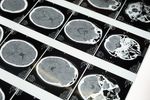Your brain is, among other things, a masterpiece of nature, your most precious organ, worthy of protecting at all costs. The gray matter runs your show – it controls everything from learning, emotion and memory to movement, vision, breathing, multiple organs, the list goes on. With such an enormous number of functions to run, 24/7 for decades on end, when the brain starts to fail, the consequences are devastating, life-changing, in the worst possible way. Small wonder the mere mention of words like cognitive impairment, dementia, Alzheimer’s – whether it’s in relation to ourselves or our loved ones –strikes fear in our heart. What’s more, the rates of these debilitating neurological conditions are expected to skyrocket in the next 20 years as the population ages and life expectancies increase – we’re looking at you Gen X and younger Boomers. Consequently, the race to save our brains is a fast becoming a top priority not only for thousands of researchers but for hundreds of millions of individuals around the world.
While the exact cause of these neurological conditions is difficult to pinpoint – it’s thought that there are multiple factors at play – the good news is that there’s growing evidence to support the idea that cognitive decline can be slowed or even stopped by taking a number of brain-saving steps, starting now. My advice? Don’t wait another minute to up your brain-protecting game with these 5 essential brain-savers and consider some exciting new treatments that are starting to make major headway in the fight to preserve brain health:
Manage your mouth – and feed your head
The first rule of brain club? Stop beating it up with the stuff that hurts it most, and the wrong foods top that list. Yes, what you put in your mouth impacts your brain – a lot. OK, so let’s say maybe your diet hasn't been a top priority lately – maybe you backslid a bit over the summer – well, now’s the time to refocus. Simply by incorporating these brain-savers into your mealtime rotation you can frontload brain health with foods that don’t promote cell-damaging inflammation and do promote optimal function of your brain’s protective glial cells. The first dietary step: Ditch inflaming sweet treats, processed crap and industrial oils for the kinds of food that soothe and support from head to toe.
Next, make wise choices, building ‘Perfect Plates,’ throughout the day – as in, ones that are packed with the nutrients your brain thrives on. Think lots of organic leafy greens, colorful veggies, dark berries, nuts, healthy fats, and moderate amounts of high quality, organic, grass-fed or pasture-raised animals and you won’t go wrong. So, what does that look like in practice? Here are 23 meal combos – a full week’s worth of ‘3 squares’ – to get you into a brain-protecting groove and (back) on track. More of a numbers person? Then do the math: think 50–70% non-starchy vegetables + 10–15% best-quality protein+ 20–30% healthy fat, and voila! The perfect plate for brain health and body health too.
And here’s a super easy one: simply switch your tipple to tea. Magnify the brain-saving effects your perfect plates by making health supportive oolong and green teas your go-to beverage. Oh, and yes, while you’re at it, you’ll also need to ditch the booze. Toxins like alcohol and cigarettes, can actually damage brain cells, in some cases, causing permanent brain changes, and, more worryingly, increase the risk of developing Alzheimer's – so keep ‘em both out of your mouth.
Tame inflammation – and bid sugar farewell
Chronic inflammation is the starting point for so many diseases that are tragically becoming endemic, dementia and Alzheimer’s among them, and sugar is a major inflamer. I know kicking sugar isn’t easy – back in the day, I used to enjoy the sweet stuff too – but ditching sugar is one of the single most important steps to take to help save your brain. As I’ve often said, sugar really is the devil. It’s addictive and does nothing but harm. In addition to setting you up for metabolic disaster, i.e., obesity and type 2 diabetes, sugar can damage brains by contributing to reduced blood flow to your gray matter, which in turn promotes brain cell death, leading to memory problems and eventually to vascular dementia. There’s a reason so many people in medicine and research have taken to calling Alzheimer's "diabetes of the brain" or "diabetes 3." It's a stark reminder of the importance of avoiding the sugar, simple carbs and the processed foods –the crappy stuff that are the cornerstones of the typical American diet. In short, to maintain a healthy brain, kicking sugar to the curb is your non-negotiable next step.
Get your belly in order – to help save your brain
A healthy microbiome consists of roughly 100 trillion bacteria that reside in the gut and work together to support immunity, digestion, and metabolism while producing essential nutrients. They also build neurotransmitters and other chemicals that travel to the brain, regulating mood and promoting optimal brain function. However, bad actors such as sugar, processed foods, antibiotics, stress, and over-the-counter medications like Advil can disrupt the balance of your intestinal flora. The resulting imbalance can lead to both gut and brain troubles - causing inflammation throughout the body and, you guessed it, in the brain as well. Research suggests that gut bacteria can release amyloid into the bloodstream which can cross the blood-brain barrier and accumulate in the form of the dreaded amyloid plaques, which are thought to be major drivers in the development of Alzheimer's and dementia. So, the better your bacterial balance, the less inflammation there’ll be to gum up your brain with amyloid plaque.
Get into game-changing red light therapy
Though red light therapy would fall easily into the treat-your-body-right category outlined below, RTL is such a game-changer it deserves a spotlight of its own. Think of RTL as a buddy for your brain – and a great one to have in your head-preserving corner. Among RTL’s positive effects on the brain, regular sessions can:
- Boost blood flow – which can potentially enhance oxygen and nutrient delivery to brain cells.
- Offer neuron protection – helping to shield them from damagers like oxidative stress and inflammation.
- Improve cognitive function – including better memory, attention, and higher processing speeds.
- Deliver mood-enhancing effects – thanks in part to its ability to influence brain neurotransmitter levels and reduce inflammation in the brain.
- Protect against neurological damage and decline: research indicates that RTL may be a promising treatment to help mitigate the effects of neurological scourges like Alzheimer's and Parkinson's disease, as well as traumatic brain injuries.
Your brain needs you to treat your body well
Beyond diet, being good to your body, is not surprisingly, good for your brain, and the three biggies here are movement, meditation and sleep. Do those well and you’ll make an enormous impact on helping to disease-proof your noggin. To stack the deck in your brain’s favor, get moving and keep moving throughout the day. There are a million reasons to move more but regular exercise is especially beneficial for promoting healthy blood flow to the brain, with the power to reduce risk of neurological problems by 50%.
Next, you’ll want to add some mediation to the mix too. It is one the simplest things way you can help preserve the volume of your brain. When you meditate, you’re gifting your hard-working brain with the downtime it needs to unwind, relax and counteract stress, which, when left unchecked, contributes to brain shrinkage in the area responsible for memory.
Last but not least, sleep. To avoid premature mental decline, get more sleep. Your brain needs it, even if you’ve (wrongly) convinced yourself you can get by without much of it. During sleep, the brain’s glymphatic system flushes cerebrospinal fluid through the brain to remove proteins that accumulate between the cells, byproducts of neurological processes during the day. This nightly cleaning keeps the brain healthy by preventing the buildup of proteins in the brain can contribute to dementia and Alzheimer’s.
Fortify gray matter with smart supplements
When it comes to brain preservation, the more steps you take the better. In addition to the dietary and lifestyle tweaks mentioned above, you can magnify their positive effects with a few key supplements to help fill in nutritional gaps and promote the body’s ability to ward off neurological decline. Among the key potential brain-boosters and savers to discuss with your doc:
- Omega 3 fatty acids/Fish oils – higher levels in the blood are associated with lowered dementia risk
- Methylated B Complex – especially in combination with omega-3s are considered to be the dynamic duo against dementia, whose superpower is stopping the brain shrinkage that’s a hallmark of Alzheimer’s.
- Vitamin D – a recent large-scale recent study of over 12,000 dementia-free 70+ year olds showed that over a third of those supplementing with Vitamin D had a 40% lower incidence of dementia vs. those who didn’t.
- Magnesium – is associated with improved brain health and may help reduce risk of developing dementia
- Coenzyme Q10 – studies indicate that patients with dementia often suffer from a coenzyme Q10 deficiency, whereas adequate levels of coenzyme Q10 may delay the progression of dementia.
- PQQ (pyrroloquinoline quinone) – also known as methoxatin, is an antioxidant that is helpful for taming inflammation and supporting mitochondrial health, both of which can help preserve brain health.
- Choline – inadequate choline levels are linked with profound changes in the brain associated with Alzheimer’s disease, so be sure to get enough, either straight from your morning egg yolks or taken as a supplement.
- Spermidine - has shown beneficial effects on brain and cognitive health in animal models, and there has been preliminary evidence of memory improvement in individuals with subjective cognitive decline.
- Vitamin B12 – deficiencies can cause cognitive impairment, forgetfulness, and confusion, so keeping levels up is important for brains of all ages
If you are starting to notice symptoms of cognitive decline, also consider adding supplements such as acetyl-L-carnitine, phosphatidylserine and ginko biloba to help slow the slide and improve brain function.
Educate yourself – and get tested
Yes, this one may be a little scary for some folks but, we’re talking about your one and only brain, so the more you know and the sooner you do, the more you can do now to prevent problems later. Ask your doctor to order a blood test for the APOE gene, which can provide an indication of your susceptibility for the disease. Keep in mind that if it turns out you’re at higher risk, the lifestyle choices you make, how you treat your body and mind can change how the gene is expressed, and help keep your brain working well for years to come.




